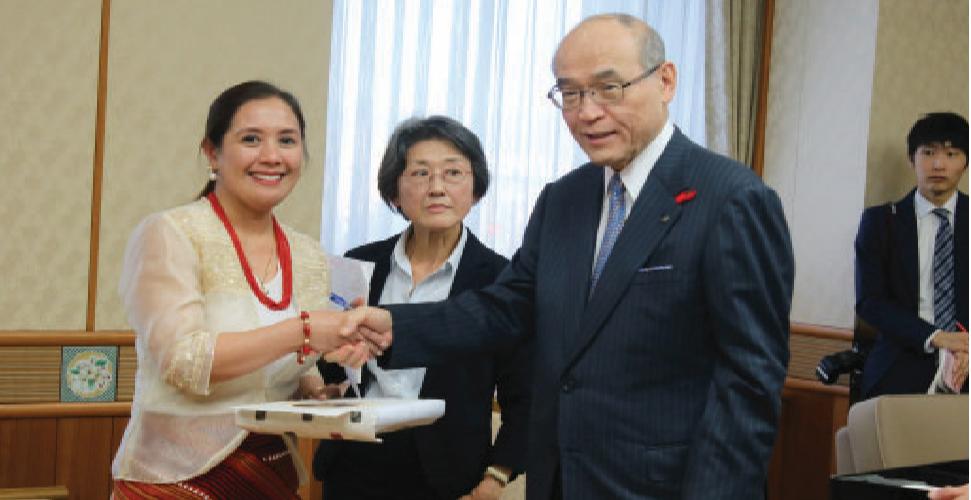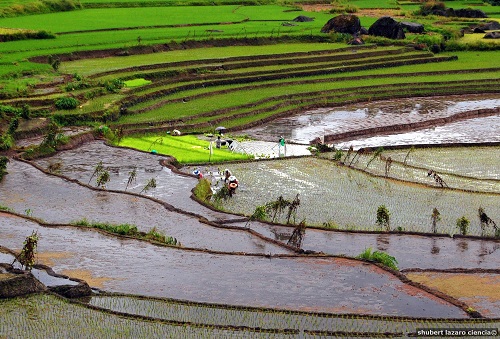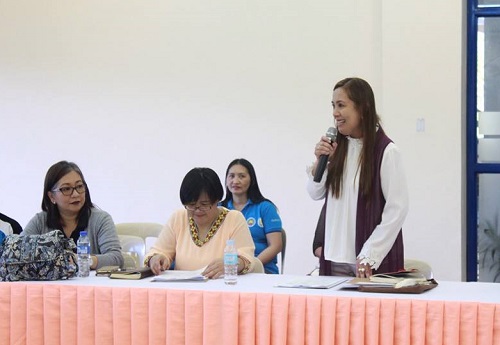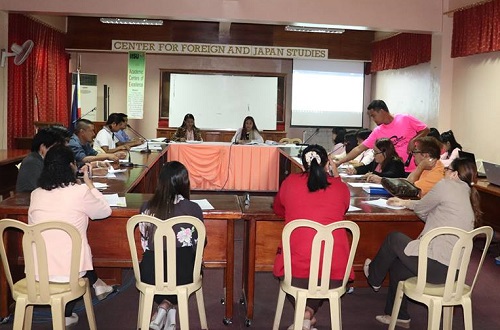IFSU hosts JICA exec on ISMTP evaluation; Phase III plans laid out
The Ifugao State University (IFSU) accommodated a high-ranking official of the Japan International Cooperation Agency (JICA) for an evaluation mission on the implementation of the University of the Ifugao Satoyama Meister Training Program (ISMTP) on February 20, 2020.
In an interview, University President Dr. Eva Marie Codamon-Dugyon discussed with Mr. Kazuhiko Kikuchi, Director-General of JICA Hokuriku Branch, the effects and impacts of the ISMTP to IFSU and GIAHS in the province. The ISMTP is the only program modeled after Japan’s Noto Satoyama Meister Training Program in the Philippines. It is being funded by the JICA through its grassroots project since 2013.
A few months shy from being weaned from JICA’s financial support, the ISMTP has already produced 81 alumni of ISMTP. Twenty-two (22) more are expected to graduate this March. “I think we have achieved much from the ISTMP,” remarked Dr. Dugyon adding that the espousal of the Satoyama and GIAHS concepts is an achievement itself for Phase I. “We were able to entice community people to enroll in Phase I producing 51 graduates. They are the torch holders of the Satoyama concepts in the communities.” Accordingly, the ISMTP was able to connect them with the Noto Satoumi-Satoyama network in Japan who are making progress by collaboratively working.
In Phase II, Dr. Dugyon said that the twinning of the ISMTP research with those of Noto SMTP in Japan is one of its achievements. “I think for Phase II, it focused more on developing the Ifugao SMTP for us to be independent, for us to be self-operative and self-reliant. I am expecting and hoping that we truly are ready.” Dr. Dugyon admitted that there are challenges in terms of finance and human resources despite the presence of technical experts from IFSU and other partner-universities.
Moreover, Dr. Dugyon also shared that the Provincial Local Government is supportive of the continuance of the ISMTP program provided the university submits to them a detailed proposal which the Globally Important Agricultural Heritage Systems (GIAHS) center is doing their best to produce.
The university president pointed out that the ISMTP produced good research outputs such as the rice wine production, loach production, and baby food from tinaw-on (Ifugao native rice), native houses conservation, among others.
Despite financial constraints, Dr. Dugyon shared that phase III will take off from its gains in the past. ISMTP aims to further develop the alumni network, meister training mentors’ exchange program, little meisters’ program, and inclusion of the Satoyama concept in the curriculum in the university. The establishment of a community-based GIAHS hub that will serve as a repository of indigenous knowledge systems is also seen as a major task for the next phase.
“We face different problems but it is important not to abandon, not to stop. Even though there is a small and narrow space, the most important thing is the motivation to move forward,” said Director-General Kikuchi.
Dr. Dugyon thanked the JICA for the opportunity it opened for the university and the ISMTP alumni. “We hope that these alumni or trainees will go back to their respective communities as change agents. We hope that the learning and experiences that they have gained from this program will resound and be duplicated in the communities through their research,” quipped Dr. Dugyon.
Director-General Kikuchi expressed his confidence in the capabilities of the University in sustaining the program through its established mechanisms and the presence of the world- acclaimed thriving Ifugao Rice Terraces in the province. //by: Faith B. Napudo





